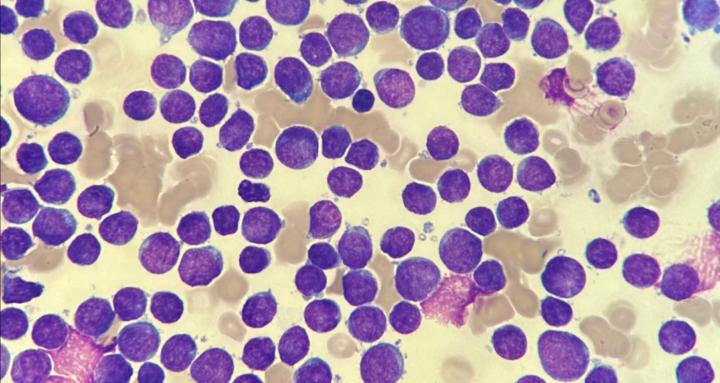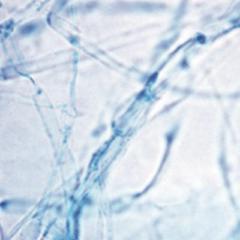1d (edited) • General discussion
Chemistry Made A LOT Easier and Digestible😋🧪⚗️
Greetings my Little Gang of Nasties 😈😜
Let’s talk about one of the most intimidating sections on the ASCP exam: Chemistry. Well…. I mean all of them are intimidating LMAO!
The good news? If you break it down into 4 major content areas and attack them piece by piece, it becomes SIGNIFICANTLY more manageable.
Before you begin studying ASCP questions, you should know that each sections tests for Biochemical Theory and Physiology, Test Procedures, Result Correlations and Disease Correlations:
🧪What *exactly* is BIOCHEMICAL THEORY?
This is the science behind the molecules you’re testing:
- The chemical structure and function of carbohydrates, lipids, proteins, and nucleic acids.
- The pathways they move through (e.g., glycolysis, lipid metabolism, protein catabolism).
- The reactions enzymes catalyze and how those reactions are measured in the lab.
- How different compounds (like bilirubin, cholesterol, glucose) behave in the body and in assays.
👉🏽Basically: “What is this molecule, what does it do, and what happens chemically when we measure it?”
📚 Why this is SUPER HIGH YIELD AND IMPORTANT for the ASCP
The ASCP doesn’t just want you to memorize test names. They want you to connect the dots:
- Biochemical theory = how the test works (the principle behind the method).
- Physiology = why we’re testing it (what’s happening in the patient’s body).
- Together = interpret results in the context of disease.
For example:
- Glucose: Biochemical theory = measured via glucose oxidase method. Physiology = regulated by insulin/glucagon. In diabetes, failure of regulation = high glucose.
- AST/ALT: Biochemical theory = enzymatic activity measured with substrate assays. Physiology = normally found inside liver cells. In hepatitis, cells die → enzymes leak into blood.
👉🏽 So when you see “biochemical theory and physiology” on a content outline, read it as:
“Understand both how the test works chemically AND why it matters biologically.”
🧪What *exactly* is PHYSIOLOGY?
This is the body’s role in regulating those molecules:
- How the liver regulates glucose, cholesterol, and protein synthesis.
- How the kidney balances electrolytes, osmolality, and acid-base status.
- Hormonal regulation (insulin, glucagon, thyroid hormones, cortisol).
- What happens when regulation fails (e.g., diabetes, metabolic syndrome, liver disease).
👉🏽 Basically: “How does the body normally keep this balanced, and what happens in disease?”
🧪What are the *exact* TEST PROCEDURES?
Test procedures are the different analytical methods used to measure substances in blood, urine, or other specimens. This includes things like spectrophotometry, immunoassays, chromatography, electrophoresis, and enzymatic assays. For example, glucose is often measured using the glucose oxidase method, electrolytes with ion-selective electrodes, proteins with dye-binding or biuret reactions, and toxicology/drug levels with immunoassays or chromatography.
👉🏽 On the exam, they want you to know:
- The basic principle behind the method (color change, antibody binding, light absorbance, separation by charge/size).
- Which tests are commonly associated with each procedure.
- Any limitations or interferences that could affect results.
🧪What are RESULT AND DISEASE CORRELATIONS?
It’s not enough to know how to run a test, you MUST know what the result means. For example:
- Elevated glucose → diabetes mellitus.
- High AST/ALT → liver injury (hepatitis, cirrhosis).
- Low albumin → nephrotic syndrome, liver failure, or malnutrition.
- High troponin → myocardial infarction.
- Increased anion gap → metabolic acidosis (DKA, lactic acidosis).
👉🏽 “Disease and result correlation” is the skill of interpreting abnormal values and linking them to the underlying disease state or physiological process. On the exam, this is often tested with clinical vignettes: they’ll give you lab results, and you’ll need to determine the most likely disease or condition.
1) General Chemistry
Covers: Lipids, Carbs, Heme Derivatives
👉🏽 This is where you want to really understand how the body processes these molecules and what abnormal test results actually mean in relation to pathology.
2) Proteins & Enzymes
Covers: Proteins, Enzymes, Nitrogen Compounds
👉🏽 Enzyme patterns are a big deal. Know which enzymes spike in which disease states, and tie that back to the physiology.
3) Acid-Base, Blood Gases & Electrolytes
Covers: ABGs, Electrolytes, Osmolality, Anion Gap (both osmolality and anion gap have equations you MUST memorize)
⚡️HIGH-YIELD: Acid-base interpretation and electrolyte imbalances are tested heavily. Be ROCK solid here.
4) Special Chemistry
Covers: Endocrinology, Vitamins, Nutrition, TDM, Toxicology (Pharmacokinetics for TDM and toxicokinetics for toxicology are tested as well)
👉🏽 Endocrine pathways, drug levels, and toxic exposures all live here. They love to test these on clinical application.
How to Attack Chemistry
- Break your study blocks into these 4 areas.
- Do practice questions after each area to force your brain to interpret the way they phrase correlations and calculations.
- Don’t just memorize procedures; know what they mean in relation to disease.
- Give yourself time to let patterns click. This isn’t about cramming, it’s about recognizing how concepts connect.
At the end of the day, Chemistry looks like a freaking monster, but once you split it up and start correlating, thats when you can kick this section’s ass.
Now go hammer those practice questions until your brain stops guessing and starts recognizing!
– Marilyn 🧪👩🏽🔬
If you’d like to join our weekly study sessions where we breakdown ASCP questions to the bone every Sunday, join the inner circle of Microscope Views here
7
7 comments

skool.com/microscope-views-free-6601
🧪🔬Helping Students Effectively Study For & Pass The ASCP Exam
Powered by





